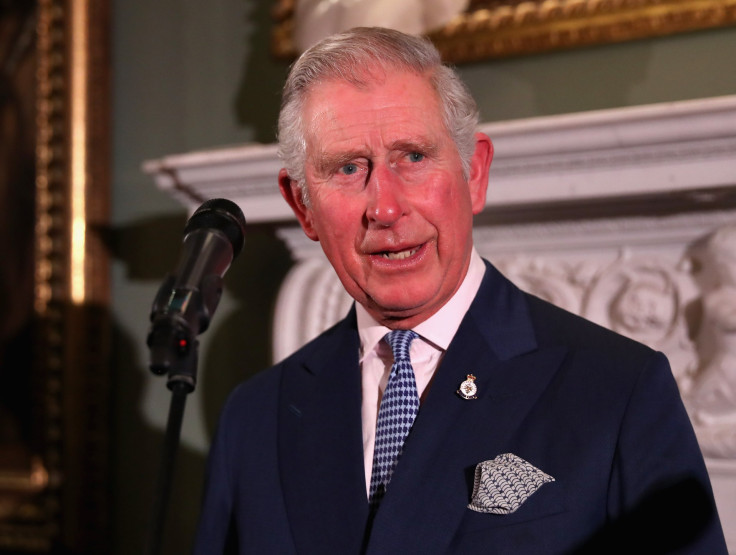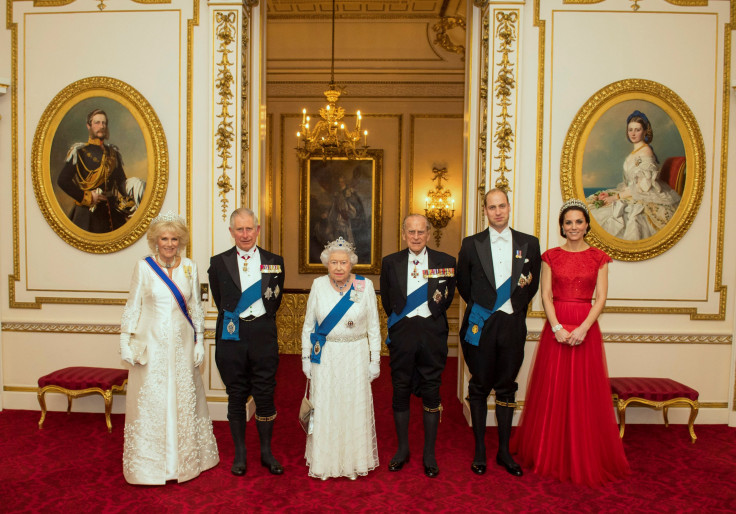Who Will Be King? After Queen Elizabeth Dies, Prince Charles Could Spark 'Constitutional Crisis'

As Queen Elizabeth II spends her 13th day out of the public eye, forgoing annual holiday traditions while battling what's been called a “heavy cold,” many have been wondering what comes next for the royal family following the queen’s death or abdication.
Buckingham Palace reported Friday the queen was continuing to recover from her illness, along with the Duke of Edinburgh Prince Philip. Long before the queen became sick just before Christmas, rumors were swirling for years about who would become the first king to hold the throne since 1952. Prince Charles, Queen Elizabeth’s son and the longest-serving heir apparent in British history, has been first in line to be king since then. However, it’s been said the 68-year-old could spark a "constitutional crisis" by immediately passing the throne to his son, Prince William.

It might sound like a long-shot, but it’s happened before. A similar phenomenon occurred in 1936 when King-Emperor Edward VIII proposed to marry American socialite Wallis Simpson, who was in the midst of divorcing her second husband. The news caused widespread confusion over the fate of the British empire, with a dramatic and historic abdication speech following the untimely succession of Edward’s brother, the Duke of York.
"You must believe me when I tell you that I have found it impossible to carry the heavy burden of responsibility and to discharge my duties as king as I would wish to do without the help and support of the woman I love," he said at the time. "I have made this, the most serious decision of my life, only upon the single thought of what would, in the end, be best for all."
Of course, Prince Charles' abdication from the throne is even further complicated by opening the ceremonial role of queen as well. While Queen Elizabeth II was the official successor of power when Edward abdicated, her rocky relationship with Charles’ wife Camilla Parker Bowles, the cause for his divorce to Princess Diana, makes for an extremely uncertain transition of power that throws the royal family’s modern tradition of hereditary succession into jeopardy.
Much like Edward, Prince Charles has faced similar controversy in his lifetime, including when he divorced Princess Diana after having an affair with Camilla Parker Bowles as well as lobbying letters he sent to ministers across several U.K. governments entitled the "black spider memos."
Meanwhile, Prince William and his wife Kate Middleton have enjoyed significantly higher approval ratings than Charles, though none were as high as Queen Elizabeth’s.
When the queen ultimately steps down from the throne, either through abdication or death, the proceeding succession of the royal family is intricately planned, with Prince Charles immediately becoming king. What’s more than likely to happen, barring an event unprecedented in modern royalty, is exactly what the Palace has planned for decades: Prince William will continue to serve in his role under his father’s throne.
© Copyright IBTimes 2024. All rights reserved.






















